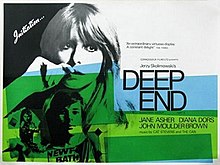
Diamonds Are Forever is a 1971 spy film, the seventh in the James Bond series produced by Eon Productions. It is the sixth and final Eon film to star Sean Connery, who returned to the role as the fictional MI6 agent James Bond, having declined to reprise the role in On Her Majesty's Secret Service (1969).
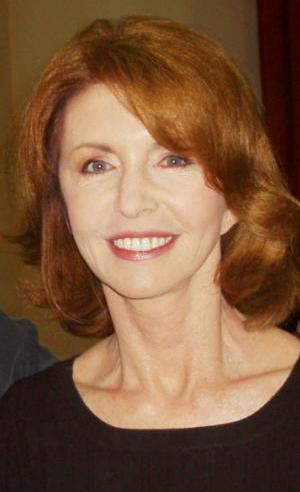
Jane Asher is an English actress and author. She achieved early fame as a child actress, and then through her association with Paul McCartney, and has worked extensively in film and TV throughout her career.

Carnal Knowledge is a 1971 American drama film directed by Mike Nichols and written by Jules Feiffer. It stars Jack Nicholson, Art Garfunkel, Ann-Margret, Candice Bergen, and Rita Moreno.

The Last Seduction is a 1994 American neo-noir erotic thriller film directed by John Dahl, featuring Linda Fiorentino, Peter Berg, and Bill Pullman. The film was produced by ITC Entertainment and distributed by October Films. Fiorentino's performance garnered widespread critical acclaim and generated talk of an Oscar nomination, but she was deemed ineligible because the film was shown on HBO before its theatrical release. October Films and ITC Entertainment sued the Academy, but were unable to make Fiorentino eligible for a nomination.

Beyond the Valley of the Dolls is a 1970 American satirical musical melodrama film starring Dolly Read, Cynthia Myers, Marcia McBroom, Phyllis Davis, John LaZar, Michael Blodgett, and David Gurian. The film was directed by Russ Meyer and screenwritten by Roger Ebert from a story by Ebert and Meyer.

Jerzy Skolimowski is a Polish film director, screenwriter, dramatist, actor and painter. Beginning as a screenwriter for Andrzej Wajda's Innocent Sorcerers (1960), Skolimowski has made more than twenty films since his directorial debut The Menacing Eye (1960). In 1967 he was awarded the Golden Bear prize for his Belgian film The Departure (1967). Among his other notable films is Deep End (1970), starring Jane Asher and John Moulder Brown.

Au Hasard Balthazar, also known as Balthazar, is a 1966 French tragedy film directed by Robert Bresson. Believed to be inspired by a passage from Fyodor Dostoyevsky's 1868–69 novel The Idiot, the film follows a donkey as he is given to various owners, most of whom treat him callously.
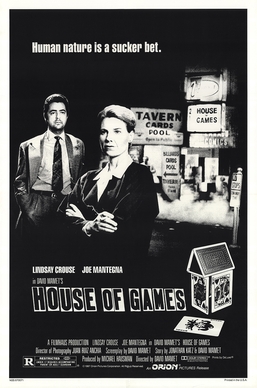
House of Games is a 1987 American neo-noir heist thriller film directed by David Mamet, his directorial debut. He also wrote the screenplay, based on a story he co-wrote with Jonathan Katz. The film's cast includes Lindsay Crouse, Joe Mantegna, Ricky Jay, and J. T. Walsh.
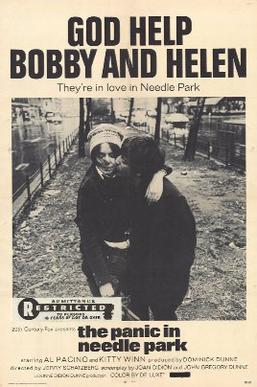
The Panic in Needle Park is a 1971 American drama film directed by Jerry Schatzberg and starring Al Pacino and Kitty Winn. The screenplay was written by Joan Didion and John Gregory Dunne, adapted from the 1966 novel by James Mills.
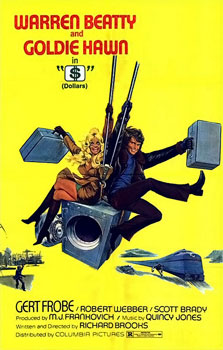
$, also known as Dollar$, Dollars or $ (Dollars), and in the UK as The Heist, is a 1971 American heist comedy film starring Warren Beatty and Goldie Hawn, written and directed by Richard Brooks and produced by M.J. Frankovich. The supporting cast includes Gert Fröbe, Robert Webber and Scott Brady. The film is about a bank security consultant (Beatty) who develops a scheme with a prostitute, Dawn Divine (Hawn), to steal several criminals' money from a bank vault.
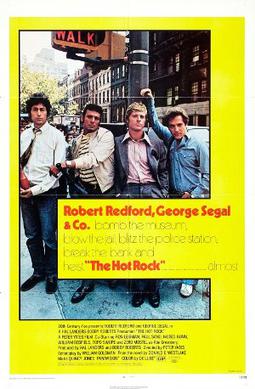
The Hot Rock is a 1972 American crime comedy-drama film directed by Peter Yates from a screenplay by William Goldman, based on Donald E. Westlake's novel of the same name, which introduced his long-running John Dortmunder character. The film stars Robert Redford, George Segal, Ron Leibman, Paul Sand, Moses Gunn and Zero Mostel. It was released in the UK with the alternative title How to Steal a Diamond in Four Uneasy Lessons.

Johnny Got His Gun is a 1971 American independent epic anti-war film written and directed by Dalton Trumbo, in his directorial debut, based on his 1938 novel of the same name. The film stars Timothy Bottoms, Kathy Fields, Marsha Hunt, Jason Robards, Donald Sutherland and Diane Varsi. It was Trumbo's first and only directorial effort.

The Train Robbers is a 1973 American Western film written and directed by Burt Kennedy and starring John Wayne, Ann-Margret, Rod Taylor, Ben Johnson, and Ricardo Montalbán. Filming took place in Sierra de Órganos National Park in the town of Sombrerete, Mexico. Two brief scenes take place in the square that was used for the final shootout in Butch Cassidy and the Sundance Kid.
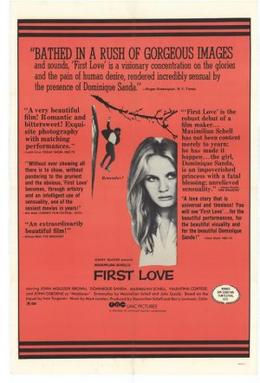
First Love is a 1970 film, written, directed, produced and starred in by Austrian director Maximilian Schell. It is an adaptation of Ivan Turgenev's 1860 novella of the same name, starring Schell, Dominique Sanda, and John Moulder-Brown.

The Seven Minutes is a 1971 American drama movie directed and produced by Russ Meyer. The movie was based on the 1969 novel of the same name by Irving Wallace.
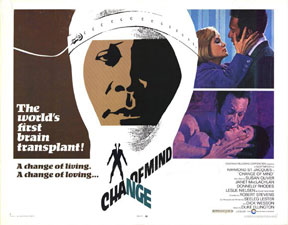
Change of Mind is a 1969 science fiction/drama film starring Raymond St. Jacques, Susan Oliver, Janet MacLachlan, and Leslie Nielsen.

King, Queen, Knave is a 1972 West German comedy film directed by Jerzy Skolimowski, based on the novel of the same name by Vladimir Nabokov.

Black Beauty is a 1971 British drama film directed by James Hill and based on Anna Sewell's 1877 novel of the same name. It is the fourth feature film adaptation of Anna Sewell's story. Lionel Bart provided the rousing score.

Black Girl is an American family drama film with a screenplay by J.E. Franklin, based on her 1969 play, and directed by Ossie Davis. The film explores issues and experiences of black womanhood in the 1970s, including how black women were depicted and common stereotypes of the period. According to Melvin Donalson in Black Directors in Hollywood, "Black Girl is a film that explores the intricate and sometimes painful connections between mothers and daughters."

One Brief Summer is a 1971 British drama film directed by John Mackenzie, the first feature film he directed. It stars Felicity Gibson and Clifford Evans. The BFI called it "one of many '60s films to explore a relationship between a middle-aged man and a young woman".
